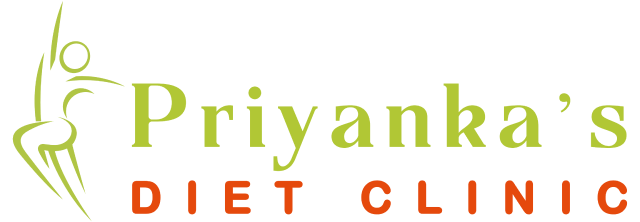Diet Plan For Stress Management – Are you trying to lower your stress levels? If yes, then you probably start the basic self-care by doing some exercise, sleep management, and healthy food. But if you don’t have the required knowledge about the foods that may help to lower your stress levels and make you stress-free. So, In this blog, we’ll discuss the best Diet Plan For Stress Management. 
We all are facing stress due to many stressful situations in our lives, but the thing is that we have to find solutions for handling the stress and making our bodies relaxed and healthy. There are many practices by which we may take care of our bodies like by having quality foods that may decrease your stress levels. So, it is important to have a healthy diet plan that may relieve stress levels. Some unhealthy food choices skyrocket your stress levels. And that might bring in health problems if you don’t address them. Moreover, short-term stress may lead to weight gain, headaches, and stomach cramps, and on the other hand, chronic stress may affect your reproductive system, and digestive system and even it may badly impact your immune system.
Foods Best For Stress Management
Here we’ll discuss the best diet plan for stress management. The list of foods that may help to reduce your stress levels is as follows:
1. Sweet Potatoes
Consuming sweet potatoes that are rich in nutrients may help to lower the levels of the stress hormone cortisol. However, the levels of cortisol are tightly regulated, as chronic stress may lead to cortisol dysfunction that causes pain, inflammation, and other adverse effects. This food is a combination of nutrients that are beneficial for stress response like vitamin C and potassium.
2. Eggs
These are often referred to as the natural package of multivitamins and this is because of the impressive nutrients they have. Eggs are packed with minerals, antioxidants, vitamins, amino acids and other required nutrients that respond well to stress.
3. Fatty Fish
Fish are rich in omega-3 fats and vitamin D, nutrients that can help to reduce stress levels and also improve your mood. These Fatty fish are not only essential for brain health but also can improve mood and handle stress. Other than this vitamin D plays a vital role in mental health and lowers stress levels.
4. Parsley
It is a combination of herbs packed with antioxidants and has a compound that neutralizes all the unstable molecules called free radicals. This may also help us to protect against oxidative stress. The antioxidants can help to reduce the inflammation that is often high in those with chronic stress. Parsley is rich in flavonoids, carotenoids, and volatile oils all of which have powerful antioxidant properties.
5. Garlic
The oldest research suggests that it is high in sulfur compounds that help to increase the levels of glutathione. Glutathione is related to your brain health. This may help to combat stress and reduce symptoms of anxiety and depression.
6. Sunflower Seeds
These are rich sources of vitamin E. Seeds are fat-soluble vitamins that act as a powerful antioxidant and are essential for mental and brain health. It is known for its powerful stress-reducing nutrients that include manganese, zinc, vitamin B, copper & magnesium.
7. Chickpeas
These are packed with stress-fighting vitamins and minerals, including potassium, zinc, vitamin B, copper, and manganese. Chickpeas are rich in L-tryptophan which your body needs to produce mood-regulating neurotransmitters. Also, research also found that diets rich in plant proteins like chickpeas may help boost brain health and improve mental performance.
8. Blueberries
These are associated with several health benefits, including improvement of mood. These are high in flavonoids and antioxidants that have wonderful neuroprotective and anti-inflammatory effects. This may help to reduce stress and also protect against stress-related cellular damage. Berries may safeguard against depression and boost your mood.
Foods To Limit Or Avoid When Stress
If there is a list of foods that help in stress management then there are also some that may impact badly on your stressed mind. You have to know whether the foods you consume are good for your health or not. Here we discuss the food items we have to avoid while stressed.
- Caffeine – Beverages such as tea & coffee can help to improve mental focus if consumed in small amounts. But drinking too much may have bad effects on your health. Consuming too much caffeine can make you feel jittery, anxious, and more stressed than you are.
- Alcohol – Take control of your alcohol intake, as it could similarly help or hurt your stress levels. Alcohol impacts badly your body and mind. Also, it is important to note that alcohol can be a major contributor to many chronic health conditions.
- Refined Sugar – Avoid refined sugar which is the kind in cakes, cookies, & candy that causes blood sugar to soar and then quickly drop. And this is the opposite of what you need when your stress levels are high and your energy levels are low.
Conclusion
In this blog, we have discussed the different types of foods to consume for stress management and foods that you have to avoid. This is because numerous foods contain nutrients that may help to reduce your stress levels. Fatty fish, kimchi garlic, broccoli, and sunflower seeds are just a few that may help. In fact, you have a variety of fruits and vegetables that provide anti-inflammatory benefits and antioxidants may help to improve the overall health and well-being of an individual. If you want a full diet plan chart for stress management then consult the best dietician.
Frequently Asked Questions (FAQS)
Question 1 – Who is the best dietitian who provides you with the proper diet plan for stress management?
Answer – Dietician Priyanka provides you with the proper diet plan for stress management.
Question 2 – If I add more fruits and vegetables to my diet will it be possible to manage my stress?
Answer – Yes, it may be helpful for you. Because fruits and vegetables more you consume will be beneficial for your body & brain.






